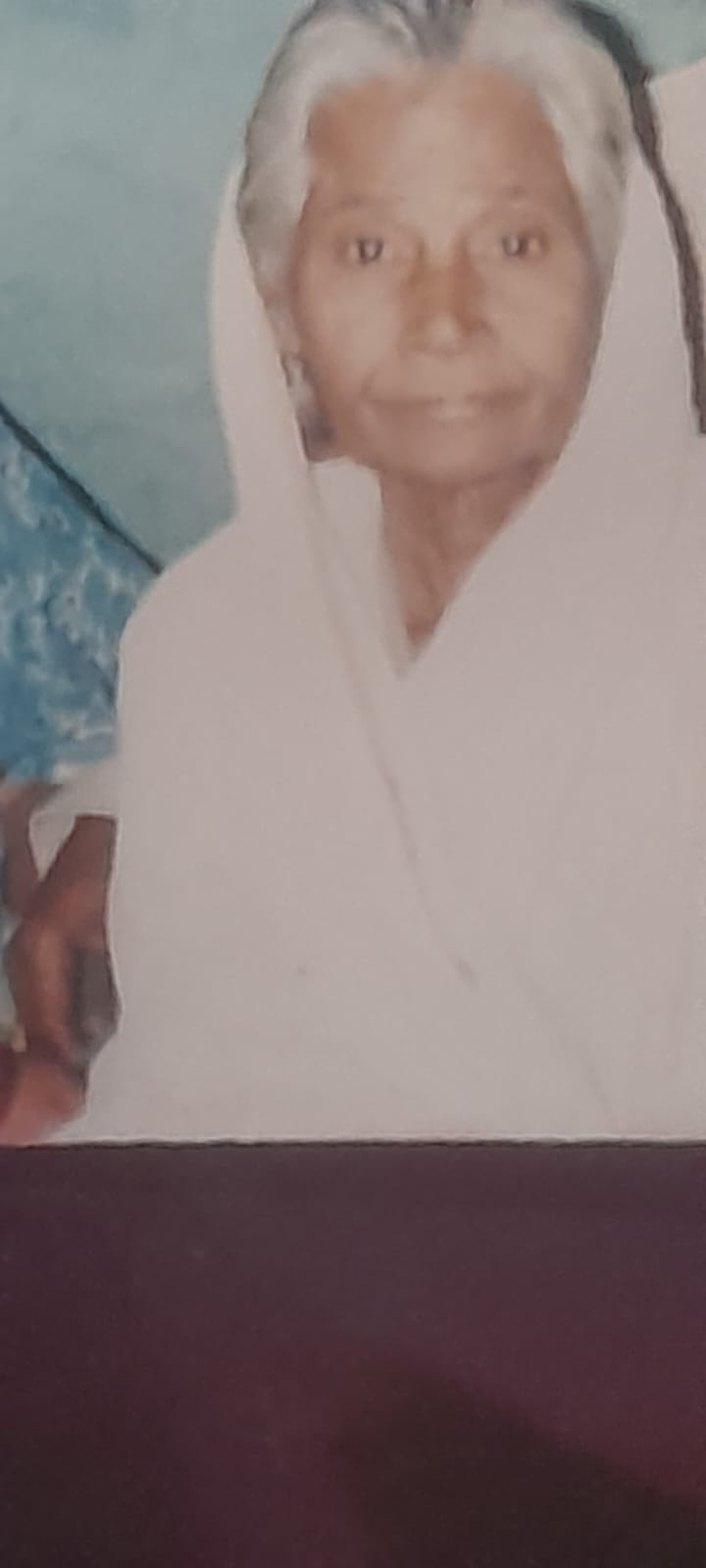Today there is Holi, and just like what we do every year during Holi festival, I was offering abeer (coloured powders) on the feet of the idols of Gods and Goddesses, and the pictures of our deceased ancestors, when my attention fell on the picture of the lady who has been my silent inspiration. The lady is my own great-grandmother. I had always thought of sharing about her but had never got a proper opportunity.
My great-grandmother was someone who stayed with us until her death. When I was young, I did not know much about her. I just heard from my grandpa, who addressed her as 'Maa', that she was his mother-in-law, or the mother of my deceased grandmother. I was too young to take interest in where her house was, or where she had lived as a child. I was taught to address her as 'Boro Maa', meaning 'Elder Mother'. I always saw her sit alone in her room. I went around, sometimes hugging her, or irritating her, or rubbing my hands against hers in order to feel her wrinkled skin. Little did I know at that time that those old hands were actually the reason why many children in the town could get a life.
When I was very young, I could see her take active role in the household activities. She always cared if we took our meals on time. She accompanied my grandpa when they came to take me home from school. At times, she travelled a good distance to see how far my rickshaw was, as I would get late for school. One day, she suddenly got lost in the process. The other elders in the family tried looking for her, but to no result. Around an hour later, she was brought home by another person who knew us. She had entered a wrong lane and had lost path. Though people chided her, she kept her smile alive, until that day when she fell off her bed. That day, she lost her voice as well as her smile. After continuous treatment her voice gradually returned, but her smile was nowhere to be seen. There even was a change in her behaviour. She became more silent and could no longer take part in household activities. Her behaviour became like that of a small child.
Amidst these days, I remember, one day I asked her name. She joyfully said, 'You want to know my name? My name is Bimala'. I could feel the pleasure when she uttered her own name. Maybe after years she was asked her name. I was too young to sense that pleasure, but I was happy seeing that she ultimately had smiled. Those days, we lived in a small, rented house, with four rooms, and an open space. My grandma lived in the room reserved for prayers. I could see her do things which often led her to get chided by other family members- such as throw away a piece of cardboard which she felt was not of any use. At night, she depended on milk and tortilla.
Years later, when I heard about her from my aunt in details, I was mesmerized! My great-grandmother was actually a trained nurse. She used to manage the maternity cell, where she helped women at the time of delivery. She used to have a box that contained materials that would help her in the process. Even in the locality, when some woman had to give birth, my great-grandmother was
called. She helped the woman, and the delivery took place smoothly even during critical situations. My aunt says that she had, for once, come across a man who had told her that he was alive that day because of a woman named Bimala Bhattacharjee, else he had almost died during his birth. His parents had taught him not to forget this name. My aunt had proudly said that it was her own grandmother. I was always curious why my great-grandmother, unlike other women, did not live at her husband's place. She had a couple of daughters- one is my own grandmother, and another is my grandmother from Sagardighi. I saw my great-grandmother live either with us in Sahibganj, or, for a change, went to Sagardighi. Why didn't she live with her husband? Who was her husband? Where did her parents live? I was curious to find the answers.
And finally, one day, I got the answers thanks to my relatives. The answers made me realise how much pain this lady had faced during the days she was young. I wished to somehow go back to her and give her a hug. But now it was too late. Her own house was in a place named Barishal. She lived there with her husband and raised her two daughters. However, one day, things took a bitter turn. The year was 1971. Bangladesh became an independent nation, and her hometown, Faridpur, fell under the land we know today as Bangladesh. This caused her to flee with her children from her hometown. She bid a permanent adieu to Barishal as she wanted to remain an Indian all her life. Here, she learnt nursing training, and trained her two daughters as well. And this is why, she lived with us till the end of her life.
Today when I look back and see that old, often-ignored face, I see an entire story. A story of creating hope amidst despair. A lady who saw herself being chased away from her nation, who saw one of her daughters die (my grandma), who was often ignored- the same lady had fought for survival and had selflessly helped many children come to earth even when she was old. At times when I feel low, I remember her face, her story, and she stands by my side as a light of hope.






